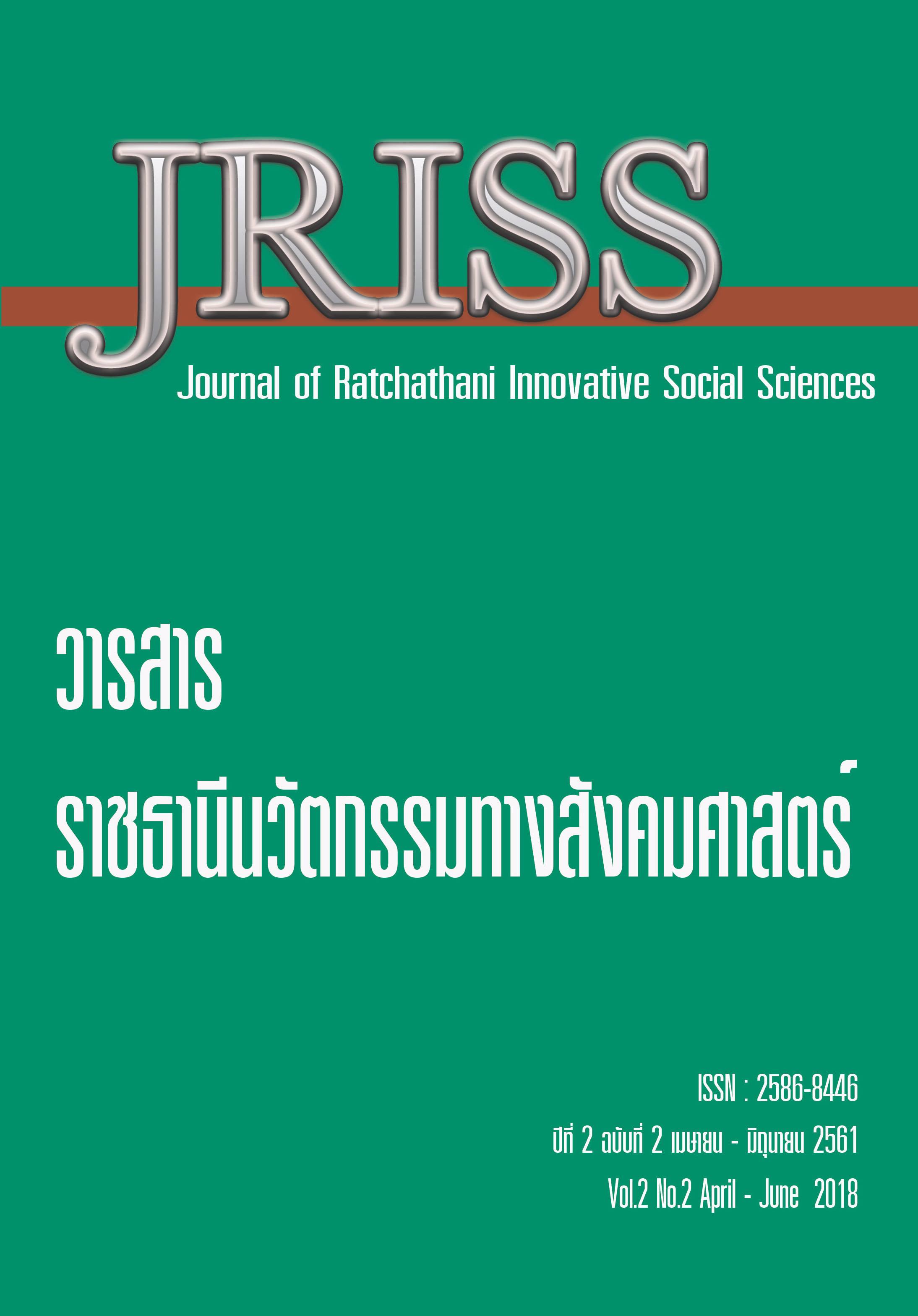The States of School – Base Management under the Ubon Ratchathani Primary Education Service Area Office 5
Main Article Content
Abstract
This research aimed 1) to study the state of school-based management of the primary schools affiliated to the Ubon Ratchathani Primary Education Service Area Office 5, 2) to compare the school-based management as classified by positions and school sizes and 3) to examine the problems and recommendations on the school-based management. A total of 262 subjects were school administrators, basic education committee, teachers’ representatives and chair persons of the educational institute committee. The research instrument was the questionnaire having 60 multiple-choice items with the reliability of 0.87, and 4 open-ended items. Statistics used in data analysis were mean, percentage, standard deviation, t-test and F-test.
The research findings were as follows.
- 1. The school-based management of the schools attached to the Ubon Ratchathani Primary Education Service Area Office 5 in overall was at a high level.
- 2. The comparison of the school-based management revealed that the committee members who held different positions and worked at different sized schools did not perceived the states of school-based management differently.
3. The problems and recommendations on the school-based management were as follows. On authority distribution, as the school administrators solely enjoyed the administrative authority, the education committee should be authorized to carry out their tasks instead. On participation: a majority of the personnel were not courageous enough to voice their views; the schools should encourage them to participate and express their opinions as much as they could. On autonomy: the schools lacked independence in the administration; they should be authorized to administer independently; the Office of the Primary Education Service Area should only supervise, follow up, and monitor the management and operation of the schools. On check and balance: the schools had to allow the communities to participate in monitoring and supervising the implementation of the plans; the communities should be allowed to take part in supervising and following up the plan implementation by the schools concerned.
Article Details
ความคิดเห็นและข้อเสนอแนะใด ๆ ที่นำเสนอในบทความเป็นของผู้เขียนแต่เพียงผู้เดียวโดยบรรณาธิการ กองบรรณาธิการ และคณะกรรมการวารสารราชธานีนวัตกรรมทางสังคมศาสตร์ไม่ได้มีส่วนเกี่ยวข้องแต่อย่างใด มหาวิทยาลัย บรรณาธิการ และกองบรรณาธิการจะไม่รับผิดชอบต่อข้อผิดพลาดหรือผลที่เกิด จากการใช้ข้อมูลที่ปรากฏในวารสารฉบับนี้
References
บุญชม ศรีสะอาด.(2554). การวิจัยเบื้องต้น. พิมพ์ครั้งที่ 9. กรุงเทพฯ : สุรีวีริยาสาส์น จำกัด.
ปัญญา แก้วกียูร.(2545). การบริหารจัดการศึกษาในรูปแบบการใช้โรงเรียนหรือเขตพื้นที่การศึกษาเป็นฐาน. กรุงเทพฯ : สำนักงานปฏิรูปการศึกษา (ชุดฝึกอบรมผู้บริหารประมวลสาระ).
พิมพ์รักข์ สามคุ้มพิมพ์.(2556). การบริหารโดยใช้โรงเรียนเป็นฐานของผู้บริหารสถานศึกษากับมาตรฐานการศึกษาขั้นพื้นฐาน. วิทยานิพนธ์ศึกษาศาสตรมหาบัณฑิต สาขาวิชาการบริหารการศึกษาภาควิชาการบริหารการศึกษา มหาวิทยาลัยศิลปากร.
สถาบันพัฒนาผู้บริหารการศึกษา กระทรวงศึกษาธิการ. (2548). การบริหารจัดการศึกษาตามยุทธศาสตร์ใหม่ของการพัฒนาระบบราชการ. สถาบันพัฒนาผู้บริหารการศึกษา.
เสาวนิตย์ ชัยมุสิก.(2544). การบริหารโดยใช้โรงเรียนเป็นฐานเพื่อประกันคุณภาพการศึกษา. กรุงเทพฯ:บุ๊คพอยท์.
สำนักงานปฏิรูปการศึกษา.(2543). พระราชบัญญัติการศึกษาแห่งชาติ พ.ศ. 2542. กรุงเทพฯ : สำนักงานปฏิรูปการศึกษา.
อัคคนาถ เผือกใจแผ้ว.(2548). การศึกษาสภาพและปัญหาในการบริหารโดยใช้โรงเรียนเป็นฐานตามทรรศนะของคณะกรรมการสถานศึกษาขั้นพื้นฐานในโรงเรียนแกนนำปฏิรูปกระบวนการเรียนรู้สังกัดสำนักงานเขตพื้นที่การศึกษานครราชสีมา. วิทยานิพนธ์ครุศาสตรมหาบัณฑิต สาขาการบริหารการศึกษามหาวิทยาลัยราชภัฏนครราชสีมา.
อุทัย บุญประเสริฐ.(2542). การศึกษาแนวทางการบริหารและการจัดการศึกษาของสถานศึกษาในรูปแบบของการบริหารโดยใช้โรงเรียนเป็นฐาน. กรุงเทพฯ :โรงพิมพ์คุรุสภาลาดพร้าว.
_______.(2545). การบริหารจัดการสถานศึกษาโดยใช้โรงเรียนเป็นฐาน School - based management.กรุงเทพฯ: จุฬาลงกรณ์มหาวิทยาลัย.


